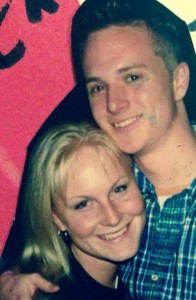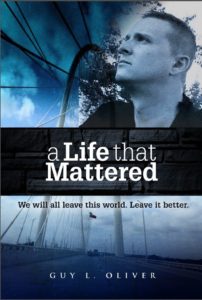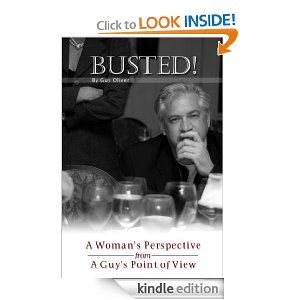Tim’s addiction notwithstanding, he was so compassionate and tender when the demons would rest. It would, however, be to whitewash his terrible behavior when they would awaken, to refuse the acknowledgement of how he put the who of his true self aside, as addicts inevitably do.
 The story is tired and worn. The addict, driven by demons that manifest anger wrought from anguish and a sense of misunderstanding by friends and family, often lashes out at them. In the aftermath, he concerns himself with the destruction brought by his own hand and desperately tries to repair the damage that confronts him when the harsh reality of sobriety beckons.
The story is tired and worn. The addict, driven by demons that manifest anger wrought from anguish and a sense of misunderstanding by friends and family, often lashes out at them. In the aftermath, he concerns himself with the destruction brought by his own hand and desperately tries to repair the damage that confronts him when the harsh reality of sobriety beckons.
My youngest daughter, Ashley, tells a story I hate but, which cries out for a voice. It was a few days before Christmas. Winter in Texas. Warm compared to the rest of the country—but the comparative warmth was only resident in the weather. It seemed, as I watched from afar, that my children were being suffocated by the dense cold of the Siberian frost present at Tim’s birth, the foretelling of the omen finally materializing as the addiction did its terrible work.
He charged at me up the stairs and attempted to corner me in my room. I don’t recall what I said that set him off, but the familiar anger reared its head and I simply wanted to get out of the way. To that end, I moved my dresser in front of my door to keep him out. It’s funny. I didn’t fear him—but I was terrified of the monster he became in that moment—like so many other moments.
Like a zombie, he pushed his way in, unrelenting and lost in the madness that drove him and I, like an animal, knowing I’d lose the fight, blindly ran. Desperate to escape his rage, I kicked out the screen of my second story window and climbed onto the ledge, clinging to the windowsill with one hand, leaning over the pavement.
The winter air hit my face and I reconsidered. The fall wouldn’t kill me, but I’d probably come away with two broken legs.
“Get out of my way, or I’ll jump.” I warned as he stood in my doorway.
And then she described a moment of lucidity. For a moment he came back to himself, undoubtedly the result of a sudden realization of his own madness. This is how it is with the addict. Somewhere deep inside him, the person we know and love calls out to the maddened beast and we see him again, the familiar countenance.
Seizing the moment, I ran past him, down the stairs, and out of the house at dusk, walking to my sister’s apartment wearing nothing but a tank top and shorts, and crying the entire way. When I arrived, it was dark and I collapsed at her threshold, begging her to call mom.
I spoke to my mother and explained my situation, choking back tears. Rather than the sympathy I expected to receive, I was instead scolded for punching Tim in the ribs and pushing his girlfriend down the stairs.
He had called her first and offered a fabricated version of the event in an attempt to preempt her anger—and that was the thing that most pained me. The thing that really hurt was not so much the ordeal I had just endured. It was, instead, that once Tim said something, it became truth to the beguiled, the facts notwithstanding.
This is the ubiquitous deception that accompanies addiction. It is the manifestation of the maelstrom, which swallows not just the addict. The lies of both commission and omission conspire to consume everyone in its vicinity and the only escape is to turn your back on the very person in need.
I ask that you carefully consider that last statement in an attempt to fully understand the cost of addiction. To escape the chaos, anger, and violence that so often accompany it, you must turn your back on the person you love who most needs you in the situation he has inadvertently created.
Now imagine you are the sister, brother, mother, or father of that lost individual. Imagine, if you can for a moment, letting him go so that you can live and go on with life. Imagine turning your back on that person you love.
That is the fallout of addiction for the loved ones of the addict.
Ashley continued:
I stayed at my cousins’ for the next few days, until I was made to come home or else Christmas would be ruined. It was not a joyous holiday for me. I found myself angry and sad as I watched the festivities as a virtual outsider.
Nothing was ever the same. I was tired of constantly hiding my purse and money. I worked 60 hours a week and came home to dangerous strangers in our home. Even my mom seldom came home, electing, instead, to stay at her girlfriend’s house. And as for me, I simply became sick of the drugs, the alcohol, the fights, the lies, and the manipulation.
I moved into a small house across town 18 months later, and the quiet was a welcome respite—but only for a moment. Three weeks into the lull, my house was burglarized while I was there, late at night. My sleep was disrupted by a sound from another room, but I dismissed it, convinced that the culprit was my cat.
I was there in my bed while an intruder opened my bathroom window, rifled through my belongings, stole my hard earned rent money, and left. I learned later that it was my brother, and I felt a violation that rivaled a physical assault, realizing there was no safe place for me.
Tim never had the decency to admit that he was the intruder, leaving me instead to cope with the fear and anxiety that a stranger, who could have been a murderer or a rapist, was the perpetrator.
To this day, I mourn the loss of the little boy I knew of Tim, but I do not miss the Tim of that evening.
As a father, these particular words haunt me:
“Nothing was ever the same.”
The mysterious thing to me—something I have never been able to fully embrace—is how these chemicals, can overtake a person. I have witnessed it countless times but any meaningful understanding evades me.
As a result I frequently ask myself, how it is possible that my son could allow such a thing for himself; for all of us? After all of my attempts to tell him, to show him, to explain to him this thing called life and how to properly live it, how? How could he walk away from the living of life and instead embrace this addiction that foments a slow decent into death and, in the ruminating, I am reminded of this passage:
“Parents can only give good advice or put them on the right paths, but the final forming of a person’s character lies in their own hands.”
– Anne Frank
At the end of it all, this story isn’t really about me, nor is it about my other two children, nor their mother. When all is said and done, this story is about my son; but what of the lives he touched? A life cannot be measured in a vacuum. It can only be measured by how other lives within your reach are enriched or diminished by your choices, which is to say your words and deeds.
My son began his life well enough, enriching others as much as a child can, but in his late teens and twenties addiction robbed not only him, but the rest of us—those who knew him and loved him—of his gift. The gifts of love, compassion, and nurturing were slowly and surely denied us in a way that we all found vexing.
For a time we were all diminished by the addiction of drugs and alcohol and how it masked the person Tim was and to this day I try to remember that it was the mask we saw during the storm. It was the hideous costume he chose to don to which we were subjected, not the beautiful person we knew who wore it.
It was the mask, and I hated it. I hated it because in the midst of the storm I turned my back on my son, unable to bear the sight of it.
…


